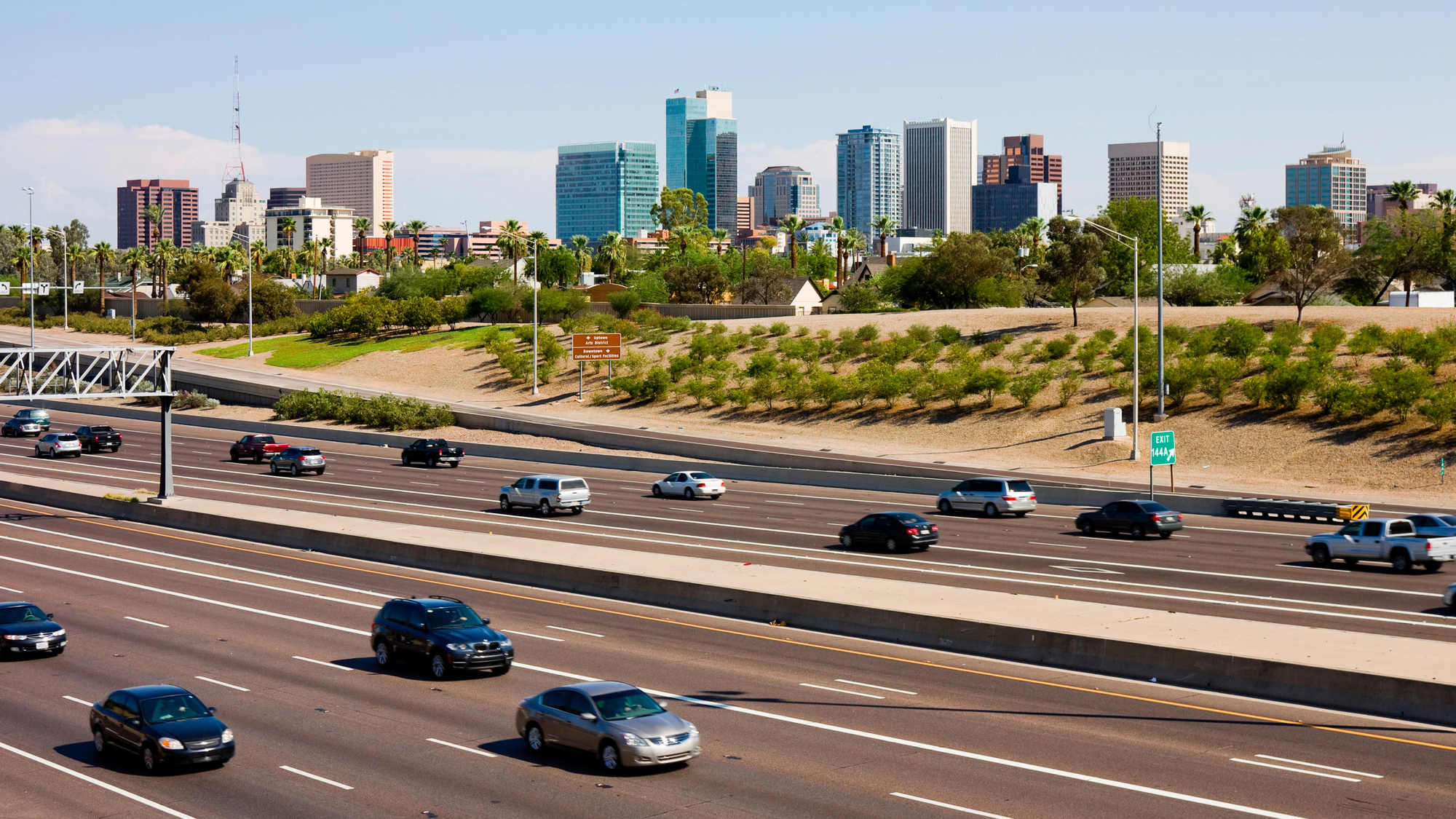

Alphabet-owned Waymo says it’s ready to begin offering autonomous, “rider-only” trips on freeways in Phoenix, Arizona nearly 15 years after its founding. Waymo will take a multi-phased approach to freeway testing by initially restricting rides to employees as passengers before eventually opening the service up to customers using its Waymo One ride hailing app. That relatively methodical rollout follows months of trouble for the leading autonomous vehicle (AV) competitor Cruise, who was forced to freeze all operations in California last year following a string of safety concerns.
Waymo, which already offers publicly available rides in parts of Phoenix, San Francisco, and Los Angeles, explained its plans for new freeway testing in a recent blog post. The company will use what it calls a “phased approach” where it will first offer “rider only” freeway commutes to Waymo employees in Phoenix. Employees will provide feedback on both the service and rider experience which Waymo says it will analyze before expanding rides to the wider public. Waymo did not provide any hard dates on when that expansion would occur, opting instead to say it would operate in a “step-by-step manner.” A Waymo spokesperson told PopSci that employees would begin taking these trips on freeways in Phoenix “in the coming weeks.”
“Before expanding, we ensure we have a comprehensive understanding of the environment we plan to operate and our system’s capabilities,” Waymo wrote in its blog post. “Waymo’s years of experience driving cars and trucks on freeways taught us to navigate everyday scenarios autonomously and inform our approach to responding to rare events safely.”
The company says its gradual expansion to freeway rides could drastically cut down on some commute times where AVs would previously look for alternative, non-highway routes. Those brisker ride times could help address complaints from some critics who say AV rides can be frustratingly time consuming.

Waymo’s acceleration onto freeways comes just months after GM-backed Cruise, one of the top players in the AV space, was forced to freeze operations in California. In October, multiple vehicles from Cruise’s fleet of driverless Chevrolet Bolt’s were reportedly responsible for causing lengthy, frustrating traffic jams. Around that same time, another Cruise vehicle reportedly ran over a woman and dragged her after a hit and run driver collided with the pedestrian and flung her into the AV’s path. Another Cruise vehicle operating in San Francisco drove into wet cement. Those incidents and growing pushback ultimately ended with the California Department of Motor Vehicles suspending Cruise’s testing permits. Cruise froze all US driverless operations and CEO Kyle Vogt resigned. Regulators forced Cruise off the road before it could begin offering rides on freeways.
Over its years of development, Waymo has tried to distinguish itself from other competitors in the AV space by emphasizing its claimed commitment to safety over the Silicon Valley mantra of moving fast and breaking things. Last year, Waymo released a report laying out the “credible case for safety” where it explains the steps it takes to determine whether or not an AV system is safe enough to be deployed on a public road without a human driver.
But freeway driving enters Waymo into new, potentially riskier territory. Unlike local city street driving, mistakes on freeways are more likely to run the risk of serious injury or death. And despite Waymo’s assurances that driverless cars are safer overall than humans, many everyday US drivers still aren’t convinced. 38% of US adults polled by YouGov last year said they feared widespread use of driverless cars on roads would increase the number of people killed in traffic accidents. That’s more than double (17%) the amount who believed driverless cars would reduce crashes.
General public queasiness around AVs makes commitments to safety and transparency all the more crucial. 63% of US adults surveyed by Pew Research in 2022 said they would not want to ride in a driverless vehicle, with another 45% saying they wouldn’t feel comfortable sharing a road with one. Almost everyone in that survey (87%) agreed driverless vehicles should have higher testing standards than regular vehicles.
